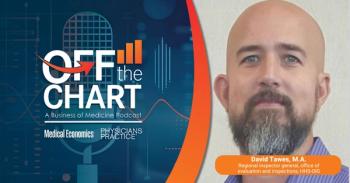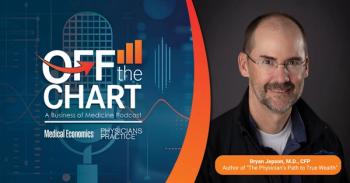
How to boost your retirement savings
Consider buying your medical office building as a way to improve retirement savings beyond 401(k) contributions.
Physicians need to start thinking about retirement while still in medical school.
During their education and training years, physicians miss out on nearly a decade of compounding interest on savings, one of the most powerful tools for building retirement savings. Furthermore, physicians may have less money and fewer years to contribute to their retirement savings.
The
The Association of American Medical Colleges (AAMC) estimates that
In the early years after college, when many of their peers are beginning to save for retirement and buy a home, physicians continue their medical education and training while simultaneously postponing earnings-sometimes by as much as 10 years. For physicians, then, traditional retirement savings vehicles may be insufficient to make up for lost time in saving for their golden years. Of course, another factor that threatens retirement savings for physicians is falling into high tax brackets. Because of their high incomes, physicians receive little to no financial aid for their children’s educations, and college savings for children inevitably impacts physicians’ own retirement savings.
This may sound a bit bleak, but don’t be discouraged. If physicians build a diversified portfolio and pursue alternative investments, they may lessen the impact of a delay in retirement savings.
One alternative investment for physicians to consider is purchasing or investing in their own medical office building.
By establishing a separate Limited Liability Company (LLC) to buy the building, physicians and their partners can become landlords of their own medical practice. If there are additional tenants in the space, the LLC earns that revenue too. Additional advantages of owning one’s own medical office building include the ability to control costs, thereby effectively eliminating the possibility of falling victim to ever-increasing rent as well as the freedom to expand or change the space as desired.
Of course, owning a building has the potential to be lucrative from a return on investment standpoint, but certain costs and conditions can negatively impact value. Before signing on the dotted line, physicians must complete a thorough due diligence and thoughtful consideration of all of the ongoing costs associated with property ownership, including utilities, ongoing maintenance, and upkeep. In addition, physicians should be careful to buy opportunistically and avoid overpaying as well as over-leveraging themselves prior to purchase.
Partners in a medical office building are well advised to come to an agreement on certain processes ahead of a property purchase. Otherwise, they run the risk of disagreements that could threaten the success of the venture.
Here are questions practices/partners/physicians need to first ask themselves:
- What is the process for making decisions?
- What is the process for accepting a new investor?
- Who is allowed to invest in the medical office building? How many will be allowed to invest?
- How are ownership shares transferred (and what are the restrictions)?
- What are the policies for distributions and redemptions?
- Who is authorized to act on behalf of the partnership/LLC?
- What happens if a physician leaves the practice? Will he/she be obligated to sell his/her interest?
- How will the building be valued? How often should valuations be done?
Ideally, investing in a medical office building will help physicians recover some of the savings they forfeited earlier in their career, but it’s not a guarantee. Pursuing alternative investment solutions such as this is one way for physicians to hedge their bets and potentially improve retirement savings outcomes.
Michael Joyce, CFA, CFP, is the founder and president of Agili, where he is responsible for the company’s overall investment strategy, management of investment portfolios, and financial counseling services. He can be reached at
Newsletter
Optimize your practice with the Physicians Practice newsletter, offering management pearls, leadership tips, and business strategies tailored for practice administrators and physicians of any specialty.








